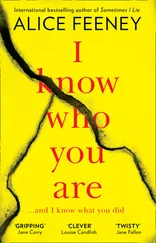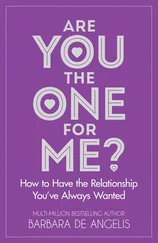But with Jenny I had the nagging sense that she wasn’t really lost, not for good. I thought of the Joneses’ house after the plane crash. The grocery list, the casserole in Tupperware, the rugby shirt folded on Jenny’s desk chair. They had gone away to Maine for one night; everything was ready for their return. Was it possible that they had staged everything to look as if they intended to come back? You Americans, Svetlana said, believe everything you see . In hindsight Mrs. Jones’s grocery list seemed a little too perfect. Not a single item crossed out, no second thoughts. It was written in one color of ink, as if it had been composed on the spot. Was it a prop? And where was the cat? Had they taken Hexa with them?
I used to lie in bed at night thinking about what I would take with me if our house were on fire. Assuming my mom and Pip made it out on their own, what irreplaceable material object would I rescue from the encroaching flames? My priorities shifted year to year. When I was seven, I wanted to save the film reel of Izzy. When I was ten, it was my journal. Later, of course, I had my Jenny files to worry about. When the Joneses prepared to go to Maine, knowing they were never coming back to Cleveland Park, what did they take with them? I imagined Jenny in her room, ranking her belongings. She left her diary behind, I remembered, which made no sense. She wrote in it almost every night and was absolutely hysterical at the possibility that someone might read it. If they knew they were leaving for good, surely she would have taken the diary with her.
My rational brain told me there was no way she could be alive. Her diary was still there. There was nothing but circumstantial evidence that her father was a spy. And it seemed unlikely that the Joneses could have defected secretly. But I couldn’t assume anything. I had to trust my gut.
* * *
ON FRIDAY NIGHT I found myself in the back of a car with Andrei on our way to the outskirts of the city. “These days only foreigners can afford to live in the center,” he said. “And novye russkie. ” New Russians were everyone’s favorite scapegoat.
The car was a Lada, ashen and boxy, and there was a hole in the backseat’s leather. I found myself nervously pulling out bits of foam stuffing. I wiggled my finger down far enough to feel the coils of the springs, and I imagined them rusted and tarnished like everything else in Russia. My fidgeting made me think of my mother. She could never keep her hands on the steering wheel. Buckled into the backseat (even when my father was no longer there to claim the passenger side, she insisted I stay in the back where it was safer), I watched her hands flit from radio knobs to her scalp—she’d scratch absentmindedly when stalled at traffic lights—to her lips, which she’d tap with two fingers in a three-quarter rhythm that suggested a waltz. I was used to her nervous energy, and in hindsight I realize that it kept her thin. She maintained a girlish figure without regular exercise. While my classmates’ mothers embraced the 1980s aerobics trend, she worried herself into shape.
Andrei had a bottle of vodka and a bouquet of flowers. I’d forgotten to bring anything. My mother had always warned me never to arrive at a dinner party empty-handed. I was trying to think of some way to compensate for my bad manners when I felt Andrei’s breath on my neck; he had scooted close to me.
“When was the last time you saw your friend?” he said.
“Which friend?”
“Your dead friend,” Andrei said.
“Ten years ago,” I said.
“That is a long time,” Andrei said. “If she is still alive, will she be the same?” He was rummaging around in his pocket, and his arm kept brushing my leg. I shivered at his touch and slid over on the seat. “Sorry,” he said. “I am looking for the lighter.”
“Please don’t smoke in the car,” I said. “I swear I’ll throw up.”
“Ah, the delicate constitution! Ladno. For you I will wait.” He removed his hands from his pockets and made a show of folding them in his lap.
“Spasibo,” I said.
“So you have ten toes and ten fingers,” he said. “Do you have any extra parts I should know about?”
“No. Nothing extra,” I said. “But I might be missing a few.”
“You are a strange girl,” he said.
The car came to a sudden stop in front of a dreary apartment block. Under the weak light of the streetlamps, I could make out a rusted slide in the courtyard, so out of use it looked like it had been abandoned by a civilization that was now extinct. The land of happy childhood.
“Ladno,” Andrei said again. He paid the driver while I got out of the car.
* * *
EVERYTHING IN MAXIM’S APARTMENT was dingy and brown. Even the walls were papered in a brown floral print. We removed our shoes in a cramped hallway and pushed into the living room, where a long table was piled with plates of cheese and various pickled things. Cucumbers had been sliced into stars that fanned across one plate. There were about fifteen people crowded around the table, and a scruffy man was playing the guitar.
“He is playing the songs of Vladimir Vysotsky,” said Andrei. “You know Vysotsky? He was like our Bob Dylan. Folk music.”
I nodded. Vysotsky’s funeral was during the Moscow Olympics in 1980. Apparently a lot of people left the sporting events to attend the ceremony.
Andrei introduced me as “moya Amerikanka.” My American. I blushed, but no one seemed to be laughing at me. Everyone seemed genuinely excited to make my acquaintance. Maxim the birthday boy offered me a clownish bow. I told him my name.
“Yevreyka?” he asked. Are you Jewish?
“Nyet,” I said. “But a lot of my friends are,” I added, afraid to seem like I was endorsing anti-Semitism.
“U menya tost!” Maxim said. Someone handed me a glass. His speech was too fast and elaborate for me to follow—lots of puns and wordplay, something about a bear, maybe?—but it must have been funny, because everyone was laughing. At the end I understood him when he said, “To America!” Maybe he was joking, but everyone drank. I forced down a large swallow of vodka and then chased it with a pickle.
I pulled off my sweater and tied it around my waist. The room was stifling. The heat in Moscow’s buildings was centralized; it was turned on at the beginning of October, and there was no way for individuals to control it. So outside you were freezing, but inside you were always too hot. It was especially stuffy on the Metro, where you were trapped in layers of clothing. Whenever I emerged from a Metro station, I could feel the sweat on my skin congeal as it cooled.
A balding guy in plaid bell-bottoms and a Brown University sweatshirt sidled over to us. “You are from America?” he said in English. I nodded. I felt like a doll on display. Wind her up and see the American drink vodka!
“You know Brighton Beach?” he said.
“This is Sasha,” said Andrei. “He lived in Brighton Beach for a year in the 1970s.”
It became clear that Sasha’s English vocabulary was stuck in that decade. “I’m hep to the jive,” he said.
“Lucky you,” I said.
“Do you read Cosmopolitan? ” he asked me.
“No,” I said.
“Do you read Playboy? ”
“Nyet,” I said. The Russian word seemed more forceful than “No.”
“There are some very interesting articles about the joys of sex with older men.” He raised his eyebrows. “Can you dig it?” Except it sounded like “Ken you dick it?” when he said it. He smelled of garlic. I swiveled away from him.
Suddenly Andrei pointed across the room. “Vot ona,” she said. There she is.
Читать дальше












